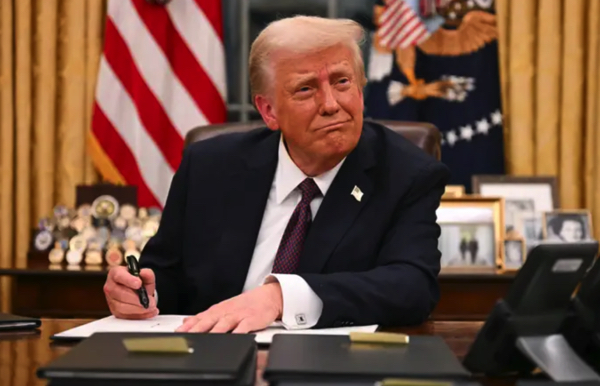 Parler
Parler Gab
Gab
- Slovakia-Based Innovation: A Slovakia-based developer has made aviation history by unveiling the world’s first mass-produced flying car, marking a major leap forward in personal air mobility.
- Dual-Mode Transformation: Klein Vision’s AirCar can switch from a car to an aircraft in under two minutes, blending road and air travel seamlessly.
- High-Profile Showcase: The vehicle was unveiled at the 2025 Living Legends of Aviation Gala in Beverly Hills, attended by Prince Harry, Buzz Aldrin, and Hollywood icons.
- Certified and Tested: The AirCar has earned a Certificate of Airworthiness after completing over 170 flight hours and 500 takeoffs and landings.
- Next-Gen Model in Development: Klein Vision is already working on the AirCar 2, featuring a 300 HP engine, 150-knot speed, and a 600-nautical-mile range, set for its first flight in 2025.
The dream of flying cars becomes a reality
The dream of flying cars—a staple of science fiction for over a century—has seen decades of bold attempts, costly failures, and slow but steady progress. While prototypes and limited models exist today, the vision of mass-produced personal flying vehicles remains just out of reach. The concept dates back to the early 20th century. In 1917, aviation pioneer Glenn Curtiss unveiled the Autoplane, a tri-wing car with detachable wings. Though it never truly flew, it sparked imaginations. Throughout the 1920s and 1930s, inventors tinkered with roadable aircraft, but none gained traction. The post-WWII era brought renewed optimism. In 1949, Consolidated Vultee (Convair) tested the ConvAirCar, a car with a detachable airplane body. It flew briefly before crashing, dooming the project. Similar efforts, like the Aerocar in the 1950s, saw limited success—only six were built, despite FAA certification. The 1970s and 1980s saw mostly experimental designs, hampered by high costs, regulatory hurdles, and technological limitations. NASA and DARPA occasionally explored the idea, but funding was scarce. The 21st century brought fresh momentum, fueled by advances in lightweight materials, electric propulsion, and autonomous systems. Companies like Terrafugia (founded 2006) and AeroMobil (2010) developed road-legal flying cars, though production delays and high prices kept them niche. Meanwhile, Uber’s Elevate program (2016–2020) promised air taxis before being sold off amid financial struggles. Recent years have seen progress—and setbacks. In 2021, Alef Aeronautics unveiled a futuristic electric flying car, while China’s Xpeng tested a low-altitude vehicle. Yet crashes, like one involving a PAL-V Liberty prototype in 2022, brought about serious safety concerns. Now enters the world’s first mass produced flying car, - AirCar - created by Slovakia-developer Klein Vision.The AirCar- the future of personal flight
The AirCar has already earned a Certificate of Airworthiness after completing more than 170 flight hours and 500 takeoffs and landings. Powered by a 280-horsepower engine, the vehicle blends advanced aerodynamics and composite materials to seamlessly transition between road and air travel. At the gala, Stefan Klein, the inventor and designer of the AirCar, was honored with the Special Recognition Award for Engineering Excellence. Hosted by John Travolta and Morgan Freeman, the event also paid tribute to firefighters who battled recent Los Angeles wildfires. “Receiving this recognition is a tremendous honor,” said Klein. “The AirCar fulfills a lifelong dream to bring the freedom of flight into everyday life. We’re merging the road and sky into a new era of mobility.” Todd Douglas Miller, director of the documentary Apollo 11, witnessed the AirCar in action and praised its innovation: “Stefan Klein has turned science fiction into reality.” Klein Vision has already developed the next iteration, the AirCar 2, which boasts a 300 HP engine, 150-knot cruise speed, and a 600-nautical-mile range. Set for its maiden flight in summer 2025, it represents 30 years of engineering progress. With the global air mobility market projected to reach $162 billion by 2034, Klein Vision is positioning itself as a leader in the future of transportation. Sources include: The-Express.com The-Express.com The-Express.comTrump eases auto tariffs to boost domestic manufacturing as trade war strains industry
By Ava Grace // Share
New York MTA quietly turns to AI surveillance to predict crime before it happens
By Laura Harris // Share
China unveils game-changing SODIUM BATTERY standard
By Lance D Johnson // Share
Trump retreats on auto tariffs, plans to exempt CAR PARTS from duties
By Ramon Tomey // Share
Rethinking the nexus of science, technology and governance: Murray Rothbard’s radical vision
By Belle Carter // Share








